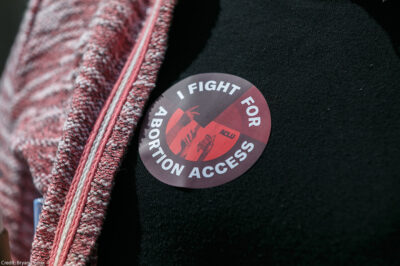As Louise said so eloquently on Friday, the Supreme Court's decision in Gonzales v. Carhart, upholding the federal ban on certain medically approved abortion procedures, is a devastating blow to those of us who care about both our right to choose whether and when to have children and our right to make private medical decisions without state intervention.
It was an incendiary decision. And in New York it has already lit a fire. A coalition of women's health advocates, led by the New York Civil Liberties Union, has been at work for months on a proposal for a piece of legislation that would overhaul and dramatically strengthen New York State's outdated reproductive rights law. Last week, after the decision came down, Governor Eliot Spitzer stood up before a room full of women -- women who have had children, women who have had abortions, women who believe it's within their right to make their medical decisions on their own -- and promised to submit that very bill for introduction in the New York State Legislature.
For the Reproductive Health and Privacy Protection Act to become law would be a major victory for women in New York and nationwide. Even as the Supreme Court continues to narrow federal protections for reproductive rights, the new New York law would protect not only the right to end a pregnancy but also the right to bear a child, the right to use or refuse birth control, and the right to keep reproductive decisions private. It would make sure women's health doesn't take a back seat to politics. And it would ensure that New York stands as a beacon in an impending storm.
New York was one of the first three states to make abortion legal. It did so in 1970, three years before Roe v. Wade was decided. Now it's time for New York to take its cue from Carhart, step up again, and lead the ongoing struggle for women's right to control their reproductive destinies.



